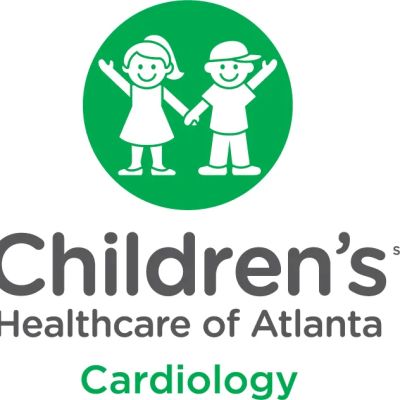- Understanding Blood Pressure and Normal Ranges
- Causes of High Blood Pressure in Young Adults
- When to Worry About High Blood Pressure
- Managing Blood Pressure in Young Adults
- Case Study: Understanding Young Adult Blood Pressure
Understanding Blood Pressure and Normal Ranges
Blood pressure is a crucial measure of your heart's health, and it varies depending on age, lifestyle, and overall health. For young adults, a normal blood pressure reading typically falls within the range of 90/60 mm Hg to 120/80 mm Hg. The first number represents systolic pressure (the force of blood against the artery walls when the heart beats), and the second number represents diastolic pressure (the pressure when the heart rests between beats).
It is important to note that normal blood pressure can vary slightly depending on the person’s health condition. If a young adult’s blood pressure rises significantly above the normal range, it may indicate potential health risks, even if there are no immediate symptoms. Understanding these ranges can help you monitor your health and make informed decisions about lifestyle changes if necessary.

Causes of High Blood Pressure in Young Adults
Several factors can contribute to high blood pressure in young adults. While some individuals may inherit a genetic predisposition to hypertension, there are also lifestyle factors that play a significant role:
- Obesity: Excess body weight puts strain on the heart, leading to increased blood pressure.
- Physical Inactivity: Lack of exercise can contribute to weight gain and high blood pressure. Regular exercise helps keep the heart and blood vessels healthy.
- Diet: A diet high in sodium (salt), processed foods, and unhealthy fats can lead to higher blood pressure.
- Stress: Chronic stress or anxiety can cause temporary increases in blood pressure, and over time, this can contribute to sustained hypertension.
- Smoking and Excessive Alcohol Consumption: Both smoking and heavy drinking can lead to raised blood pressure, as they affect heart function and blood vessel elasticity.
Understanding the causes of high blood pressure is the first step in preventing or managing it. By addressing these risk factors, young adults can significantly reduce their chances of developing hypertension.
Dr. Timothy Carter, MD
1111 montauk highway west islip ny
1111 Montauk Hwy Suite 3-3, West Islip, NY 11795, USA

When to Worry About High Blood Pressure
High blood pressure is often called the "silent killer" because it typically does not present noticeable symptoms. However, if a young adult’s blood pressure is consistently above the normal range, it can lead to serious complications, including:
- Heart Disease: Chronic high blood pressure puts extra strain on the heart, leading to the risk of heart attacks, heart failure, or stroke.
- Kidney Damage: The kidneys filter blood and are sensitive to changes in blood pressure. Persistent high blood pressure can damage kidney function over time.
- Vision Loss: High blood pressure can damage blood vessels in the eyes, leading to vision impairment or even blindness.
If your blood pressure readings consistently fall outside the normal range (e.g., above 140/90 mm Hg), it is important to consult a healthcare provider. They can evaluate your risk, conduct further tests, and recommend lifestyle changes or medications to manage your blood pressure.
Managing Blood Pressure in Young Adults
Managing blood pressure is key to long-term health. Here are several steps young adults can take to maintain healthy blood pressure:
- Regular Exercise: Engaging in physical activity, such as walking, jogging, or swimming, can help keep blood pressure in check. Aim for at least 150 minutes of moderate exercise per week.
- Healthy Diet: Adopt a diet rich in fruits, vegetables, whole grains, and lean proteins. Limiting sodium intake and reducing processed foods can help lower blood pressure.
- Maintain a Healthy Weight: Losing excess weight can significantly lower the risk of high blood pressure. A healthy BMI (Body Mass Index) is typically between 18.5 and 24.9.
- Avoid Smoking and Limit Alcohol: Smoking raises blood pressure and harms blood vessels, while excessive alcohol intake contributes to weight gain and hypertension. Limiting these behaviors can improve your heart health.
- Manage Stress: Practice stress-reducing techniques such as mindfulness, meditation, deep breathing exercises, or yoga to lower the impact of stress on blood pressure.
Making these lifestyle changes can have a positive impact on your health and help prevent high blood pressure from becoming a serious concern.
Case Study: Understanding Young Adult Blood Pressure
Consider the case of “Sarah,” a 25-year-old who noticed an increase in her blood pressure during routine doctor visits. Despite feeling generally healthy, her blood pressure readings were consistently above 130/85 mm Hg, which raised concerns. After some investigation, Sarah and her healthcare provider discovered that her sedentary lifestyle and frequent consumption of fast food were significant contributing factors. With the guidance of her doctor, Sarah started a regular fitness routine, improved her diet, and reduced her stress levels. Within a few months, her blood pressure returned to a normal level, demonstrating how simple lifestyle changes can have a profound impact on health.
This example highlights the importance of monitoring blood pressure regularly and taking proactive steps to manage it, especially for young adults who may not immediately recognize the risks associated with hypertension.
If you're looking for advice on managing your heart health, including how to monitor and reduce your blood pressure, check out HeartCare Hub for tips, products, and services designed to help you live a healthy life.






















Cardiology Specialists Medical Group
399 e highland ave san bernardino ca 92404
399 E Highland Ave # 317, San Bernardino, CA 92404, USA